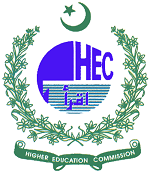Institutional Quality and Tax Revenue Mobilization in Nigeria (1996 - 2021)
Abstract
The current study aimed to investigate the critical nexus between institutional quality and tax revenue mobilization in Nigeria from the time period (1996-2021). The study employed preliminary tests including descriptive statistics, the unit root test, and the Autoregressive Distributed Lag Model (ARDL). Unit root test was employed to determine the dataset, and ARDL was the econometric technique employed to assess the effect of institutional quality on tax revenue mobilization while a diagnostic test was conducted to ensure that the results of the model are statistically valid, reliable, and not misleading. The results highlighted that improvements in bureaucratic efficiency positively correlate with enhanced tax collection, emphasizing the importance of streamlined administrative processes. Additionally, the study underscored the negative effect of corruption on tax revenue mobilization. Policy implications emanating from the study include strengthening institutional quality and the need to support long-term economic growth through human capital development, infrastructure, and diversification to expand the tax base.
Downloads
References
Abu, N., Karim, M. Z. A., David, J., Sakanko, M. A., Ben-Obi, O. A., & Gamal, A. M. (2021). The behaviour of tax revenue amid corruption in Nigeria: Evidence from the non-linear ARDL approach. Economic Research, 31(4), 55–76.
Amedanou, Y. M. I. (2021). Politics, institutions and tax revenue mobilisation in West African Economic and Monetary Union (WAEMU) countries. UCA HAL Science Ouverte. https://uca.hal.science/hal-03255316v1/document
Augustine, A. A. (2020) Does institutional factors matters in individual taxpayer’s compliance behaviour? Empirical evidence from selected states in south-west, Nigeria. International Journal of Economics, Commerce and Management United Kingdom, 8(4), 1–24.
Bahl, R. (1971). A regression approach to tax effort and tax ratio analysis. IMF Staff Papers, 18(3), 570–612. https://doi.org/10.2307/3866315
Bangaké, C., Avom, D., Ndoya, H., & Adouma, P. (2025). Do remittances increase tax revenues in developing countries? Evidence from the threshold regression models. Applied Economics, 57(38), 5975–5991. https://doi.org/10.21203/rs.3.rs-2206459/v1
Eregha, P. B. (2013, September 17–19). Is per capita growth hampered by weak Institutions and poor governance in ECOWAS Countries? A panel data analysis [Paper presentation]. 54th Annual Economic Conference of the Nigerian Economic Society (NES), Abuja, Nigeria.
Heller, P. S. (1975). A model of public fiscal behavior in developing countries: Aid, investment, and taxation. The American Economic Review, 65(3), 429–445.
Johnson, P. N., & Omodero, C. O. (2021). Governance quality and tax revenue mobilization in Nigeria. Journal of Legal Studies, 28(42), 1–41. https://doi.org/10.2478/jles-2021-0009
Kaufmann, D., & Kraay, A. (2002). Governance indicators: Where are we, where should we be going? World Bank Research Observer, 17(1), 5–34. https://doi.org/10.1093/wbro/lkm012
Lotz, J. R., & Morss, E. R. (1967). Measuring tax effort in developing countries. IMF Staff Papers, 14(3), 478–499. https://doi.org/10.2307/3866266
Nguyen, T. A. N., & Luong, T. T. H. (2021). Fiscal policy, institutional quality, and public debt: Evidence from transition countries. Sustainability, 13, Article e10706. https://doi.org/10.3390/su131910706
Ofori, I. K., Ofori, P. E., & Asongu, S. (2021). Towards efforts to enhance tax revenue mobilisation in Africa: Exploring synergies between industrialisation and ICTs (Working Paper No. WP/21/058). AGDI. https://www.econstor.eu/handle/10419/249069
Olarinde, M. O., & Jonathan, J. M. (2021). The impact of corruption on economic growth in Nigeria. Journal of Asian Development, 7(2), 27–50. https://doi.org/10.52941/jad.v7i2.24
Ozekhome, H. O. (2022). Tax and foreign direct investment in Nigeria: A dynamic estimation approach. Journal of Economic Development, The Economic Research Institute, Chung-Ang University, 47(2), 115–124.
Pamba, D. (2023). Does the quality of governance affect tax revenue in South Africa? Preprints. https://doi.org/10.20944/preprints202301.0216.v1
Pesaran, M. H., Shin, Y., & Smith, R. J. (2001). Bounds testing approaches to the analysis of level relationships. Journal of Applied Econometrics, 16(3), 289–326. http://www.jstor.org/stable/2678547
Rodríguez-Pose, A., & Muštra, V. (2022). The economic returns of decentralisation: Government quality and the role of space. Environment and Planning a: Economy and Space, 54(8), 1604–1622. https://doi.org/10.1177/0308518X221118913
Rotimi, C. O., John, N., Rotimi, M. O., & Doorasamy, M. (2021). Assessment of the impact of government revenue mobilisation on economic growth in Nigeria. Journal of Economics, Business, & Accountancy Ventura, 24(2), 310–325. https://doi.org/10.14414/jebav.v24i2.2716
Russell, B. (2010). Revenue administration: Developing a taxpayer compliance program. IMF eLibrary. https://doi.org/10.5089/9781462314218.005
Salman, R. T., Sanni, P., Olaniyi, T. A., & Yahaya, K. A. (2022). Governance transparency of tax revenue performance in West Africa. Business Ethics and Leadership, 6(1), 14–24. http://doi.org/10.21272/bel.6(1).14-24.2022
Zalle, O. (2022). Natural resource dependence, corruption, and tax revenue mobilisation. Journal of Economic Integration, 37(2), 316–336.
Copyright (c) 2025 Siyanbola Adedamola Akeem, Okuyelu Gbenga, Adeniwura Oluwatoba Oyedele

This work is licensed under a Creative Commons Attribution 4.0 International License.
JFAR follows an open-access publishing policy and full text of all articles is available free, immediately upon acceptance. Articles are published and distributed under the terms of the Creative Commons Attribution 4.0 International License. Thus, work submitted to UMT Journals implies that it is original, unpublished work of the authors; neither published previously nor accepted/under consideration for publication elsewhere. On acceptance of a manuscript for publication, a corresponding author on the behalf of all co-authors of the manuscript will sign and submit a completed Author Consent, Copyright, and Declaration Form.







